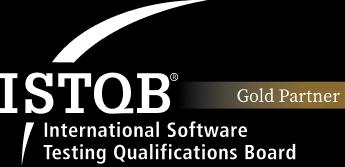
What is Android programming? Popular programming languages for Android
In an era of continuous technological advancement, mobile devices have become an integral part of our daily lives. Among these, the Android platform stands out as a major technology developed by Google.
This article by Tokyo Tech Lab offers an overview of Android programming, including its definition, common programming languages, and the benefits of pursuing a career in this field. Let's dive into the details!
I. What is Android Programming?
Android programming refers to the process of developing mobile applications that run on the Android operating system. Launched by Google in 2008, Android has become the most popular operating system for mobile devices such as smartphones and tablets. Developing Android apps involves writing code, designing user interfaces, and integrating various features to create useful applications for users.

While Android applications can be written in multiple programming languages, Java and Kotlin are the two most commonly used. Android Studio is the official integrated development environment (IDE) for Android, providing the necessary tools and resources to develop apps efficiently.
II. Roles and responsibilities of an Android Developer
Android developers are responsible for designing, developing, and maintaining mobile applications for the Android operating system. They work with Java or Kotlin programming languages, Android development tools (SDKs), and libraries to create functional and visually appealing applications. Here are some key tasks that Android developers typically handle:
-
Application Development: Writing code and building applications based on project requirements. This includes creating user interfaces, handling data, and integrating features such as maps, camera functionalities, games, and social networking services.
-
Testing and Debugging: Ensuring that applications run smoothly and are free of bugs. Android developers need to perform both manual and automated testing to guarantee the app's quality before release.
-
Updates and Maintenance: After an app is launched, developers monitor user feedback, fix bugs, and update features to enhance user experience.
-
Performance Optimization: Making sure the app performs efficiently across various Android devices with different hardware configurations.
-
Collaboration: Working closely with designers, project managers, and other team members to ensure the project meets deadlines and quality standards.
III. Popular Android Programming Languages Today
Although Android supports various programming languages, the most commonly used ones for Android development are:
-
Java: Java was the first programming language supported on the Android platform. With its stability and rich library ecosystem, Java remains a popular choice for many Android developers.
-
Kotlin: Officially supported by Google since 2017, Kotlin has quickly become a primary alternative to Java. Developers favor Kotlin for its concise, safe, and modern syntax.
-
C++: Used in Android via the Android NDK (Native Development Kit), C++ is mainly employed for writing high-performance applications, such as games or complex graphic software.
-
Python: While not as prevalent as Java or Kotlin for Android development, Python can still be utilized through tools and libraries like Kivy or BeeWare.
-
Dart: Dart, used with the Flutter framework, is an emerging language for Android app development. Flutter enables the creation of visually appealing and high-performance applications on both Android and iOS platforms.
IV. Pros and Cons of Popular Android Programming Languages
Each programming language has its own set of advantages and disadvantages. Below is a brief analysis of the main languages used in Android development:

1. Java Programming Language
Advantages:
-
Platform Independence: Java can run on various platforms thanks to the Java Virtual Machine (JVM), which makes it easier to port applications across different development environments.
-
Popularity and Large Community: Java is a highly popular language with a large community. This abundance of resources and community support makes it easier to find documentation and get help.
-
Official Support from Google: Java has been officially supported by Google for Android development from the beginning, leading to a wealth of strong libraries and comprehensive documentation.
-
Multithreading Capabilities: Java provides robust support for multithreading, which allows Android apps to handle background tasks efficiently.
Disadvantages:
-
Verbose Syntax: Java's syntax can be quite verbose, potentially making the code more complex and harder to maintain.
-
Performance Issues: Compared to languages like C++, Java may not achieve optimal performance since the JVM needs time to compile bytecode into machine code.
-
Memory Management Limitations: While Java's Garbage Collection helps manage memory, it can sometimes cause performance issues and less efficient memory management.
2. Kotlin Programming Language
Advantages:
-
Concise and Modern Syntax: Kotlin features a concise, modern syntax with fewer chances for errors, which can boost developer productivity.
-
Full Compatibility with Java: Kotlin is fully interoperable with Java, allowing existing projects to seamlessly transition and use both languages together.
-
Null Safety: Kotlin's null safety system helps minimize null pointer exceptions, a common and troublesome error in Java.
-
Official Support from Google: With Google's official support for Kotlin in Android development, there is a promise of long-term support and timely updates.
Disadvantages:
-
Smaller Community than Java: Despite its rapid growth, Kotlin's community is still smaller than Java's, which can make finding resources and support more challenging.
-
Advanced Features: Kotlin supports modern features like extension functions, coroutines, and lambdas, making application development more flexible but potentially harder for beginners to learn.
-
Learning Curve: For newcomers, Kotlin might be slightly more difficult to learn than Java due to its syntax and advanced features.
3. C++ Programming Language
Advantages:
-
High Performance: As a compiled language, C++ provides the highest performance among Android development languages, suitable for applications requiring speed and graphics processing.
-
Direct Memory Management: C++ allows for direct memory management, enabling developers to optimize performance and resource usage effectively.
-
Rich Libraries: There are many powerful libraries available for C++ that aid in developing cross-platform applications or handling specific tasks such as image and audio processing.
Disadvantages:
-
Complex and Hard to Learn: C++ has a complex syntax and requires substantial knowledge of system-level programming, making it difficult to learn and use.
-
Memory Management Errors: Direct memory management in C++ can also lead to issues like buffer overflows or memory leaks, requiring developers to be very cautious.
-
Lack of Official Support: C++ is not officially supported by Google for Android development, which means documentation and support might be limited.
4. Python Programming Language
Advantages:
-
Easy to Learn and Use: Python's syntax is simple and easy to read, making it an ideal choice for beginners.
-
Rich Libraries: Python boasts a vast array of powerful libraries that support the development of various applications, including Android development.
-
Rapid Development: Python enables quick application development due to its clean syntax and extensive support tools.
Disadvantages:
-
Lower Performance: As an interpreted language, Python's performance is generally not on par with compiled languages like C++.
-
Lack of Official Support: Google does not officially support Python for Android development, which can limit the availability of documentation and tools.
-
Requires Intermediate Frameworks: Python-based Android apps need intermediary frameworks like Kivy or BeeWare to run, which can add complexity and reduce performance.
5. Dart Programming Language
Advantages:
-
Strong Support from Google: Dart, developed and strongly backed by Google, is particularly well-supported for the Flutter framework, which is used for cross-platform development.
-
Cross-Platform Development: Dart enables simultaneous development for Android, iOS, and the web using Flutter, saving both time and resources.
-
Good Performance: Dart is compiled into machine code, offering better performance compared to interpreted languages like Python.
-
Hot Reload Feature: Flutter’s Hot Reload feature allows developers to see code changes instantly without restarting the application, significantly enhancing development efficiency.
Disadvantages:
-
Smaller Community: Compared to languages like Java or Kotlin, Dart has a smaller community, which can make finding resources and support more challenging.
-
Learning Curve: Dart might be difficult to learn for those who are accustomed to traditional languages like Java or C++.
-
Dependency on Flutter: Dart is primarily used with Flutter; without using Flutter, there are fewer use cases for Dart.
V. Why Should You Choose to Learn Android Programming?

-
Large and Growing Market: Android dominates the global mobile market, creating a constant and increasing demand for Android applications.
-
Career Opportunities: With the high demand for Android apps, Android developers enjoy excellent job prospects and competitive salaries.
-
Diverse Application Development: You can create a wide range of applications, from games and business apps to personal tools.
-
Powerful Development Tools: Android Studio provides robust tools and resources to help developers build applications efficiently.
-
Supportive Community: The large and active Android developer community makes it easy to find documentation, get support, and exchange experiences.
-
Access to Cutting-Edge Technology: Mastering Android programming opens up opportunities in emerging fields like Artificial Intelligence (AI), Virtual Reality (VR), and the Internet of Things (IoT).
VI. Conclusion
Android programming offers a world of potential and opportunities. Understanding popular programming languages such as Java, Kotlin, and C++ will help you choose the path that suits you best. We hope this article has provided valuable insights. Stay tuned to Tokyo Tech Lab for more informative content on Information Technology!
SHARE THIS ARTICLE
Author
Huyen TrangSEO & Marketing at Tokyo Tech Lab
Hello! I'm Huyen Trang, a marketing expert in the IT field with over 5 years of experience. Through my professional knowledge and hands-on experience, I always strive to provide our readers with valuable information about the IT industry.
More Posts



About Tokyo Tech Lab
Services and Solutions
Contact us
© 2023 Tokyo Tech Lab. All Rights Reserved.







